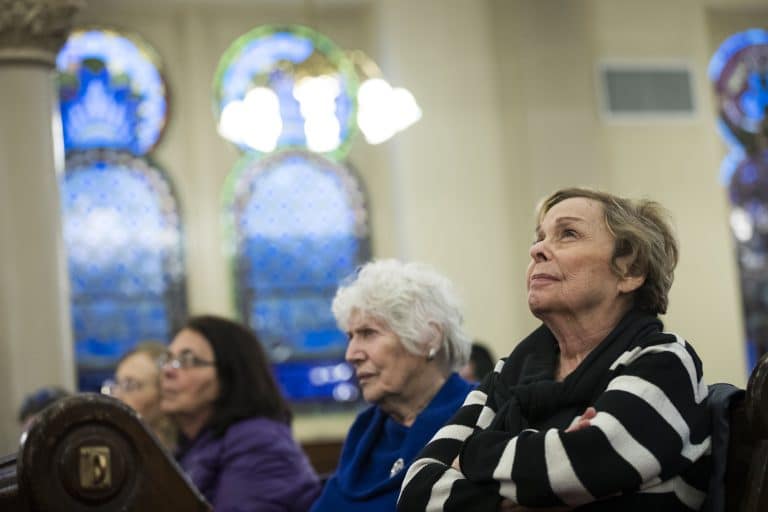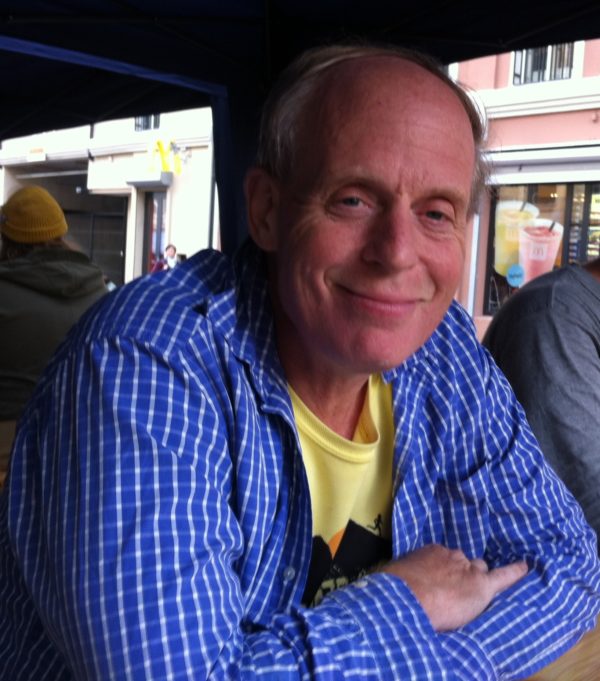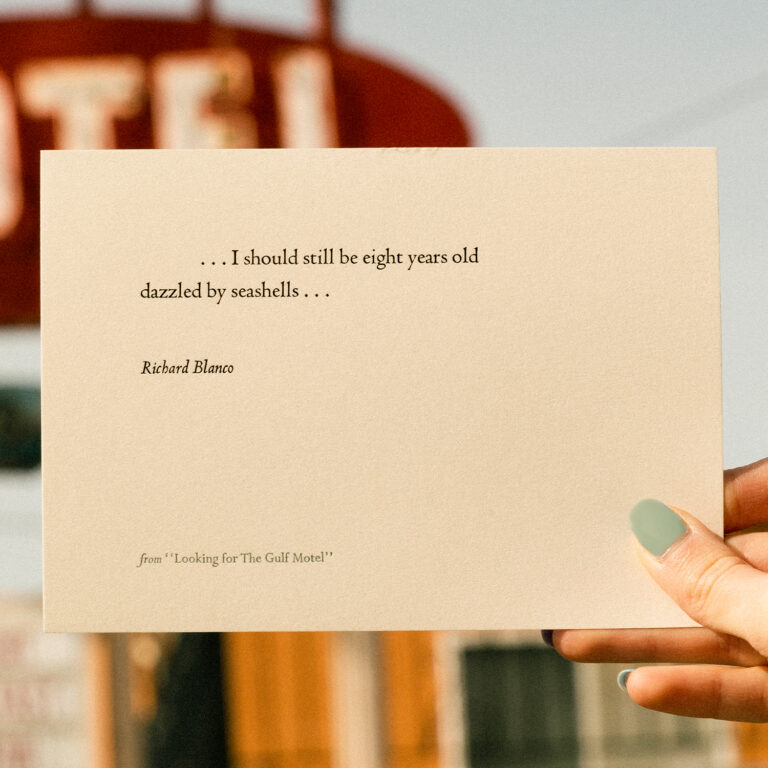
Image by Drew Angerer/Getty Images, © All Rights Reserved.
First Jewish, Then Nothing, Now Something: My Unexpected Return to Spiritual Life
I was raised Jewish. This used to be my response whenever I was asked what my religion was. Not that the subject came up very often. I didn’t belong to a temple, and volunteering at the annual rummage sale of a local church was the extent to which my wife kept up the faith of her own childhood. Our demanding jobs and three kids left us too focused on the here and now to worry about what lay beyond it. And so amidst carpools and barbecues, our kids’ social studies projects and our own projects at work, the days passed by like minutes. Almost before we knew it, our oldest child was going to be a freshman in college.
My wife and I would occasionally wonder if we should be raising our kids as something. The problem wasn’t that we were intermarried. Having grown up Jewish with an Episcopalian mother and Jewish father, I knew that picking one religion and honoring the other could work. No, the problem was that neither of us felt an urgent enough need for spirituality. It was at the bottom of a long to-do list, an item to check off on that never-to-come date when all the other stuff was taken care of.
Even when my wife was treated for breast cancer, the need, at least for me, didn’t become more urgent. I had too much faith in science to consider the possibility that she wouldn’t make it. Her surgery and chemotherapies were at a top hospital, where the doctors all seemed so brisk and confident. Here they were pitting medicine’s most powerful drugs against her disease. What chance did it have? After several years of remission, the cancer receded even further from my thoughts.
But then one bright fall day, shortly after our twenty-fifth wedding anniversary, I took my wife to a hospital ER from which she never emerged. I took her there for back pain, assuming we would be out in a few hours. Only with the arrival of the coroner’s report six months later did we learn that her cancer had returned stronger than ever, as if having gathered momentum during the period of remission. In an afternoon, life as I knew it had been blown apart, and driving home from the hospital that day, I struggled to find words of comfort, any balm for the news I was about to deliver to my children.
But I had none. It was too late to say, “Mom’s in heaven.” They hadn’t been raised with any belief about what happened when someone died, despite both my wife’s religion and my own being rich in such beliefs. Even when, at an earlier age, they attended the Episcopalian funeral for my seventy-six-year-old mother, we never discussed its religious content with them.
Now my kids were teenagers, and it was their own mother who at age forty-nine was gone. The hole was enormous, and I had nothing to stuff in there, not even the most makeshift consolation to hold until I came up with something more substantial.
“Mom died in the hospital, and the doctors don’t know why,” was what I said to my two sons as we sat together on the front steps of the house where they had lived their entire lives. Then I put my arms around them and told them how they had been the world to her. Soon I would need to have this same conversation long-distance with my daughter, only two weeks into her first year of college.
Parents of teenagers are supposed to be able to see further than their kids. We are able — we hope — to help them navigate adolescence because we have navigated it ourselves. We know what is on the other side, that there is another side. But at that moment I had no answers, just questions of my own.
The first were medical. How could back pain kill someone? I left an ER full of doctors who didn’t know either. But even if I had come home with a clear cause of death, I still had no real explanation for what happened. Just like that, the woman with whom I shared my life for a quarter of a century had vanished. It was unbelievable, as if she had just stepped out and would soon be here with the pizza that we promised to pick up for dinner. The thread would resume exactly where it had broken off. I couldn’t begin to grasp death’s peculiar combination of finality and endlessness, the way a life never stops being over.
Almost three years later, I still struggle with this riddle. But well before science offered a solution, I realized that, no matter what this turned out to be, it would not be nearly enough to withstand the pain of severe loss. I was going to need more than laboratory data to help me cope. After dodging the question for so long of whether I believed in any other existence than the one described by such data, I had to decide. To my surprise I decided that I did.
A week after her death my wife’s physical remains were buried in the chapel garden of the Methodist church where she had volunteered all those years. The service was beautiful, but what I remember most was the conversation I had with my daughter in the garden after everyone went inside.
“Is that Mom?” my daughter asked, staring in horror at the pile of ashes that had just been deposited in the soil. “Mom is here,” I told her while placing my hand on my heart. I wasn’t sure what I meant, only that it was more than us not forgetting her. It was something about the people we love becoming an indelible part of us, even if it is not apparent to science. Something about a soul that can’t be reduced to biochemistry or a pile of ashes.
Without intending to, I had just defined myself as a spiritual person. Months later, in an effort to flesh out my answer, I would revisit my religious upbringing and join a local synagogue’s Torah study group. But for me the path to Torah study began in that church garden, where it took the visible presence of death, the either/or choice of whether “that” was “Mom,” to make me decide I did not believe my eyes. There had to be more.
But what this “more” consists of I am not sure, and even if I were, I would never try to instill my certainties in my ever more adult children. They have their own paths to follow from that church garden, and I am as curious about these as I am about where mine will lead. I was raised Jewish, and my kids weren’t raised as anything. But how we will be raising ourselves in years to come remains to be seen.


Share your reflection